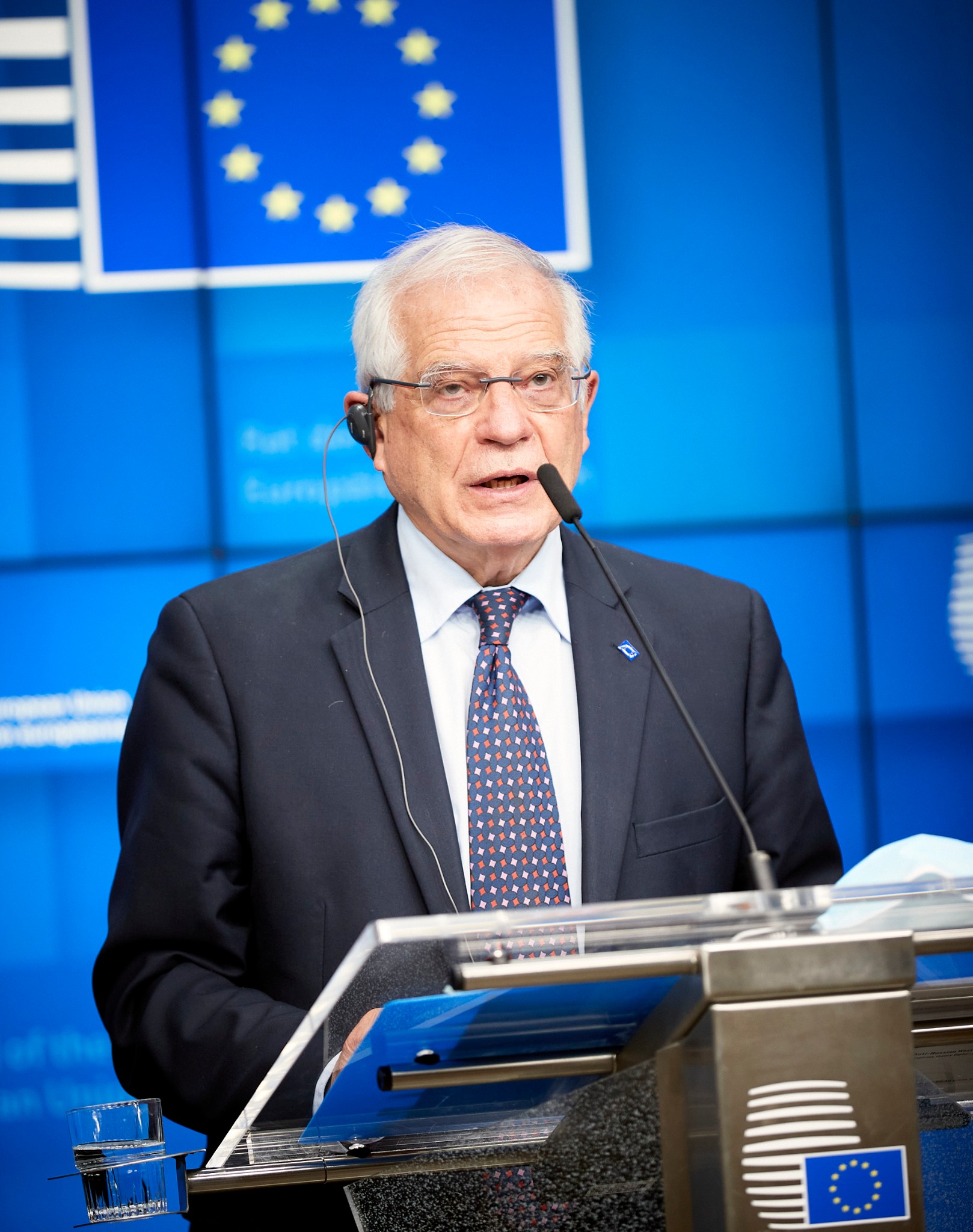 Photo Courtesy: Council of the EU Newsroom ©European Union
Photo Courtesy: Council of the EU Newsroom ©European Union
Reconsidering EU Sanctions on Russia
The EU has moved to impose sanctions against four Russian officials involved in the jailing of Kremlin critic Alexei Navalny, who was arrested upon return to Russia after being poisoned last year. The EU plans to target two prosecutorial officials, the head of Russia’s prison service, and the head of Russia’s national guard. The U.S. is working to coordinate sanctions too. Sanctions are used to deter and punish aggressors, but in order to do this, they must be effective beyond simple posturing.
Sanctions can be a practical measure used to impart consequences on economic sectors of a certain country or specific people, but they will only be effective when they are specific, coordinated between countries, and used in conjunction with diplomacy. They should be tied to specific results that make it clear why the sanctions are in place, and what exactly will be required for them to be removed.
Sanctions Effectiveness
Broad sanctions are ineffective and fail to achieve their desired goals. Russia is so accustomed to sanctions that it has been able to adapt and protect its economy in response. As a result, the success of sanctions may be dependent on the effects they have on specific individuals and networks, rather than wider economic sectors.
Past EU sanctions against Russia have been ineffective in changing or curbing Russian actions. The EU imparted sanctions on Russia in 2014 in response to the crisis in Ukraine and illegal annexation of Crimea. At this point there are 48 entities and 177 individuals under sanction, and even as recently as October 2020 more people were added to the sanctions list. The U.S. has also imparted sanctions on Russia for the destabilization of Ukraine. Even with the vast sanctions applied to various persons and entities, Russia has not curtailed its actions at all.
The lack of evidence for sanctions having their intended outcomes poses the question of whether they are used for posturing rather than leading to a change in behavior. Sanctions are now seen as the most common response to any unfavorable actions by Russia, and Moscow clearly knows this, yet has done nothing to change its actions so far.
Obstacles to Compelling EU Sanctions
A point of order within the EU is that sanctions must hold up in EU courts, meaning that the EU cannot leverage sanctions against people for actions that cannot be proved. This means that in response to Navalny’s jailing, the EU is only able to impose sanctions on people who were directly involved. So even while Putin certainly gave the go ahead to arrest Navalny, the EU will not be sanctioning him. The block also has to worry about the political feasibility of such sanctions. Imposing sanctions on Putin would never happen because it would lead to a severe backlash and further deterioration in EU-Russian relations.
These sanctions by the EU are important, but they also represent the EU’s unwillingness to truly push back against Russia. The four Russians who are to be sanctioned are not close to Putin. They are his staff, but they are not his close confidants. The sanctioning of these four men will not change the political calculus of Putin and the Kremlin.
Multilateral Coordination
The U.S. does not face as many issues as the EU in imposing sanctions, notably in that its actions can be decided on single handedly and can then be much firmer. Navalny’s anti-corruption group has released a list of 35 oligarchs and government officials it believes should be sanctioned, and it would be well worth the U.S.’s time to look into these people and seriously consider sanctioning them.
While Biden may be working to recalibrate U.S. sanctions, it is unlikely that there will be any great changes in U.S. sanctions policy. As the U.S. also has a much smaller direct economic influence on Russia than EU, coordinating with European allies is imperative for increasing the effectiveness of sanctions policy. The EU and the U.S. should convene a working group to discuss the effectiveness of their sanctions against Russia. The discussion should include discourse on options other than sanctions, the possibility of placing sanctions on people actually close to Putin, and other options short of conflict. This should be done while thinking about the future of U.S.- and EU-Russia relations in the face of increasingly aggressive actions by Moscow. Sanctions are an important tool, but they are not always effective, and should be used to impart real consequences, not just for symbolic posturing.





